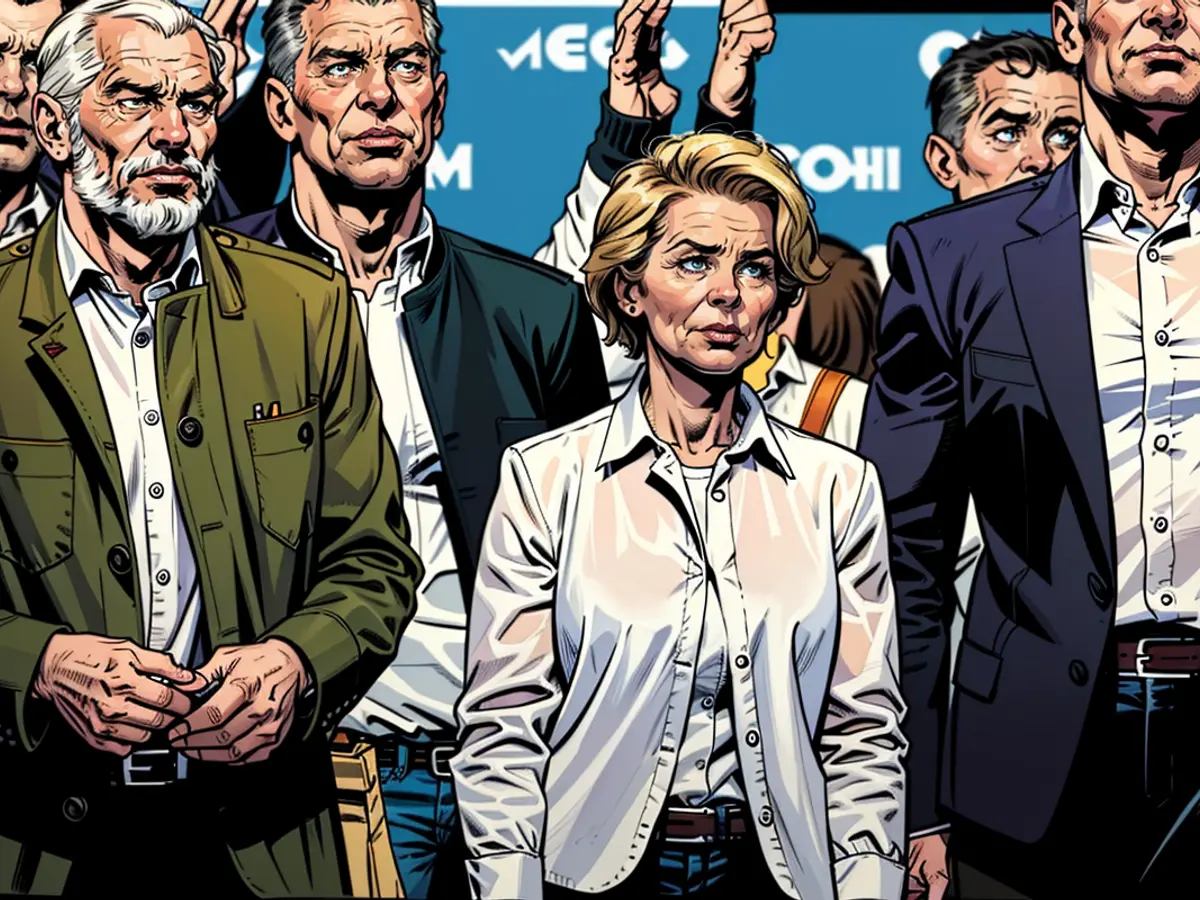EU climate plans - Soder: Fundamental burning ban must go
Bayern's Minister-President and CSU Chief Markus Söder is demanding concrete measures from the European Commission to reverse the ban on internal combustion engines (ICE) after 2035. "The fundamental ICE ban must be lifted. We are betting on technological openness instead of ideology," Söder told "Bild am Sonntag." This was a central election promise of the European People's Party (EVP) faction in the European Parliament and must be upheld.
Besides electricity, e-fuels and hydrogen also offer great potential for climate-friendly mobility. "Private cars could also be refueled with them in the future. It's good that the EU is finally moving in this direction," Söder said.
The EU states and the European Parliament had sealed the end of new cars with diesel and gasoline engines after 2035 in March 2023. Concretely, this means that new cars may no longer emit carbon dioxide, as it does during the combustion of gasoline and diesel. The German government intervened on behalf of the FDP to ensure that there are exceptions for so-called e-fuels.
From von der Leyen for a "technology-neutral approach"
The re-elected EU Commission President Ursula von der Leyen (CDU) recently announced in her political manifesto for the coming five years an initiative for exceptions for e-fuels. Explicitly, it says there that "a technology-neutral approach is necessary, in which e-fuels will play a role by adapting the regulations in the context of the planned review." Von der Leyen speaks here of the review of the decision on the ICE ban, which is planned for 2026.
Details about this proposal for softening the already decided EU-wide ICE ban are still open. In a press conference after her re-election in the European Parliament, von der Leyen gave no concrete answer to the question of whether private individuals could still buy cars with internal combustion engines after 2035. Manfred Weber, chairman of the Middle-Right Alliance EVP (CSU), welcomed the fact that the new commission would rework the ICE ban.
Green politicians: E-fuels will always be a niche product
For the ADAC, e-fuels, in addition to the presumably dominant electromobility, are another way to achieve climate protection goals. It is important that realistic conditions for the use of e-fuels are formulated. Above all, old combustion engines have a significance.
Green politicians remain relaxed about the softening plans. "E-fuels will always be a niche product in road traffic," said Michael Bloss, the climate policy spokesman for the Greens in the European Parliament.
Volkswagen Group CEO Oliver Blume sees himself confirmed in his "dual e-strategy." "We welcome the EU's proposed approach: A clear commitment to electromobility and the allowance of e-fuels. We need every technology in Europe," Blume told "Bild am Sonntag."
The future belongs to electromobility, sensibly supplemented by e-fuels – above all for existing vehicles and series like the Porsche 911. Electricity and synthetic fuel – both are part of the solution on the way to more climate protection.
- Markus Söder, the Minister-President of Bayern and CSU Chief, is pushing for the European Commission to reconsider the future ban on internal combustion engines (ICE).
- According to Söder, the ICE ban should be lifted in favor of technological openness instead of ideology, as it was a key promise of the EVP faction in the European Parliament.
- The EU and European Parliament have agreed to phase out new cars with diesel and gasoline engines after 2035, which means new cars will no longer emit carbon dioxide.
- The German government, supported by the FDP, has advocated for exceptions for e-fuels, which have great potential for climate-friendly mobility.
- Ursula von der Leyen, the re-elected EU Commission President, has announced a technology-neutral approach, with a focus on e-fuels in her political manifesto.
- Volkswagen Group CEO Oliver Blume supports the EU's proposed approach, welcoming a clear commitment to electromobility alongside the usage of e-fuels.
- Green politicians remain skeptical about the potential of e-fuels, viewing them as a niche product in road traffic, while the ADAC sees them as another way to achieve climate protection goals.
- The automobile industry in Germany, specifically in Bayern (Bavaria), will likely be greatly impacted by these changes in environmental politics, as they adapt to the shift towards electromobility and e-fuels.
- The European Commission, the Federal government, and the European Parliament will have significant roles in shaping the Climate Plan, including decisions regarding the ICE ban and exceptions for e-fuels.
- The future of climate politics in Europe will be shaped by a balance between electromobility and alternative energy sources like e-fuels, which will require cooperation between various political parties and industries like the automobile industry.








